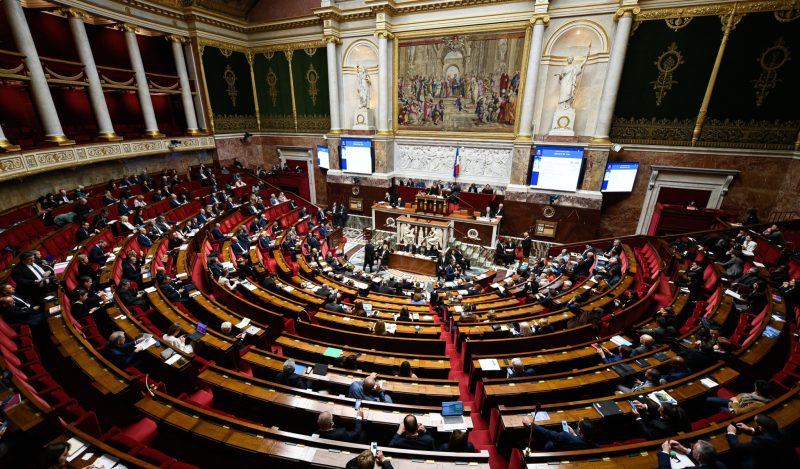Major international governments have signed multibillion-dollar legal contracts with drug companies in order to secure access to covid-19 vaccines.
But the drug companies and governments have refused to divulge details, saying the information is “commercial in confidence.”
In 2021, we got our first peek at contracts between Pfizer and various international countries after they were leaked to The Bureau of Investigative Journalism and US consumer group Public Citizen.
“The contracts offer a rare glimpse into the power one pharmaceutical corporation has gained to silence governments, throttle supply, shift risk and maximise profits in the worst public health crisis in a century,” said Zain Rizvi, author of the Public Citizen report.
Pfizer was accused of “bullying” governments during contract negotiations, asking some Latin American countries to put up sovereign assets, such as embassy buildings and military bases, as a guarantee against the cost of any future legal cases.
High court decision
Last month, a South African NGO called Health Justice Initiative won a high court challenge to gain access to all of South Africa’s covid-19 vaccine contracts.
Tony Nikolic, an Australian solicitor from law firm Ashley, Francina, Leonard & Associates, reviewed the Pfizer contract and says it reads like South Africa was “held to ransom” over the deal.

“It’s a one-sided contract. Pfizer gets all of the profits and none of the risks,” says Nikolic. “It’s akin to extortion, there’s absolutely no liability for the vaccine manufacturer in terms of injuries that may arise from their product.”
The South African government agreed to “indemnify, defend and hold harmless” Pfizer and all its affiliates from “any and all suits, claims, actions, demands, losses, damages, liabilities settlements, penalties, fines, costs and expenses” arising from the vaccine.
It also says the government will “create, dedicate, and maintain a no-fault compensation fund sufficient to undertake and completely fulfil the indemnification obligations….. for damage, injury, or harm arising out of, relating to, or resulting from the development, administration, or use of the vaccine.”
Nikolic says, “It’s like the manufacturers could ask for anything they wanted. There was such panic at the time and images in the media of people dying in the streets created a real sense of fear and insecurity around the world.”
The protection against liability is not only in place for the initial vaccine formulation, but for “any or all related strains, mutations, modifications or derivatives of the foregoing that are procured by Purchaser.”
“What this means,” explains Nikolic, “is that Pfizer can modify its vaccine to match whatever variants emerge, and still have all the same protections against liability. This is nothing more than a cash cow for Pfizer, they are privatising the profits, whilst socialising the costs.”
Pfizer charged the South African government $10 per dose, which is nearly 33 percent more than the $6.75 “cost price” it reportedly charged the African Union.
“In my view, this is why Pfizer wants the details kept secret, so that it can protect the various price differences between countries. It’s classic price gouging with a predatory twist, that is why procurement transparency is essential,” says Nikolic.
Long-term safety?
The contract states “the long-term effects and efficacy of the vaccine are not currently known and that there may be adverse effects of the Vaccine that are not currently known.”
Nikolic says this is in stark contrast to the public health messages at the time.
“We had politicians and key opinion leaders telling people that the vaccines were ‘safe and effective’ when the procurement contracts themselves did not make such claims,” says Nikolic.
“The contract clearly indicates that adverse effects were unknown at the time of signing. The burden of proof should never have been on the people to prove the vaccine was unsafe, it should have been on the manufacturer to prove the vaccine was safe,” he adds.
Nikolic has spent the last two years trying to access the procurement contracts signed by the Australian Government.
“Australians are still in the dark about what is contained within these contracts. We know it gave liability protection to the vaccine manufacturers like other countries, but that’s the extent of it,” says Nikolic.
“We need to know what our politicians knew at the time of signing the deal. And we need to know how much money we, the taxpayer, spent for a vaccine that turned out to be far less safe or effective than promised,’ he adds.
In a recent Australian Senate committee hearing, Queensland Senator Malcolm Roberts grilled Pfizer executives under oath about the indemnity clauses in its contract with the Australian government, but Pfizer refused to give details.

“The contents of Pfizer’s contract with the Australian Government remains confidential,” said Pfizer Australia’s medical director Krishan Thiru.
In 2021, Nikolic mounted a legal challenge against covid-19 vaccine mandates in the NSW Supreme Court where he tried to subpoena the Pfizer contract, but his request was blocked.
Undeterred, Nikolic submitted an FOI request to the Australian Department of Health.
The FOI request, however, was denied because the contracts “contain information that is confidential in nature” such as “trade secrets and commercially valuable information.” It stated:
“The documents contain commercial information regarding the procurement of vaccines to Australia. The documents contain information specifically relevant to the unique commercial arrangements between the department and third parties, including indicative prices, payment terms, professional indemnity, ongoing funding measures, manufacturing details and production measures.”
Nikolic says, “It’s unethical, potentially unlawful and immoral for them to argue that the right to preserve commercial confidence overrides the right for public safety, it just doesn’t make sense.”
He adds, “It just boggles the mind how governments just rolled over and entered into agreements with companies like Pfizer that have a long track record of breaching the False Claims Act resulting in billion-dollar criminal and civil liability.”
Reposted from the author’s Substack
Published under a Creative Commons Attribution 4.0 International License
For reprints, please set the canonical link back to the original Brownstone Institute Article and Author.









